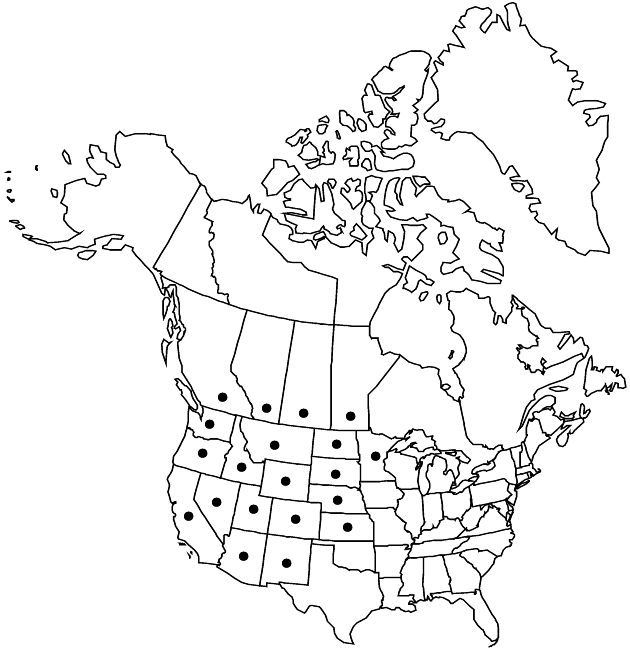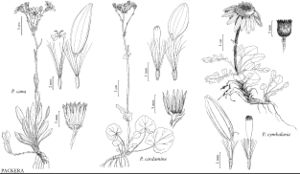Packera cana
Phytologia 49: 46. 1981.
Perennials, 10–30+ cm; rhizomatous (rhizomes branched, suberect, stout). Stems 1 (per rosette, rosettes clustered), densely lanate or canescent. Basal leaves (and proximal cauline) petiolate; blades ovate or elliptic to lanceolate, 25–50+ × 10–30 mm, bases tapering, margins entire or irregularly undulate to weakly dentate (abaxial faces persistently lanate, adaxial lanate to subglabrescent). Cauline leaves gradually reduced (petiolate or sessile, then weakly clasping; elliptic to lanceolate, entire or weakly dentate). Heads 8–15+ in corymbiform arrays. Peduncles bracteate, usually densely lanate to floccose-tomentose (sometimes subglabrescent). Calyculi inconspicuous (bractlets tomentose). Phyllaries 13 or 21, green, 5–8+ mm, densely tomentose. Ray florets 8–10 (or 13); corolla laminae 8–10+ mm. Disc florets 35–50+; corolla tubes 2.5–3.5 mm, limbs 3.5–4.5 mm. Cypselae 2.5–3.5+ mm, glabrous; pappi 4.5–7 mm. 2n = 46, 92.
Phenology: Flowering late Jun (south)–mid Aug (north).
Habitat: Open plains and sagebrush associations, dry rocky slopes and crevices in granitic and limestone outcrops
Elevation: 200–3700 m
Distribution

Alta., B.C., Man., Sask., Ariz., Calif., Colo., Idaho, Kans., Minn., Mont., Nebr., Nev., N.Mex., N.Dak., Oreg., S.Dak., Utah, Wash., Wyo.
Discussion
Packera cana is found in a wide variety of habitats and in a wide range of elevations throughout the western Cordillera and into the High Plains. Morphology is relatively uniform throughout its range except that alpine specimens are notably dwarfed and are often mistaken for P. werneriifolia, which differs by its consistently scapiform habit.
Selected References
None.
